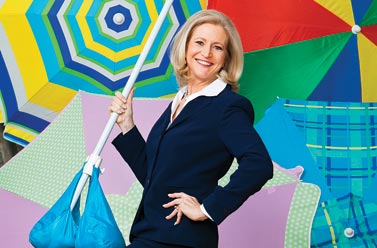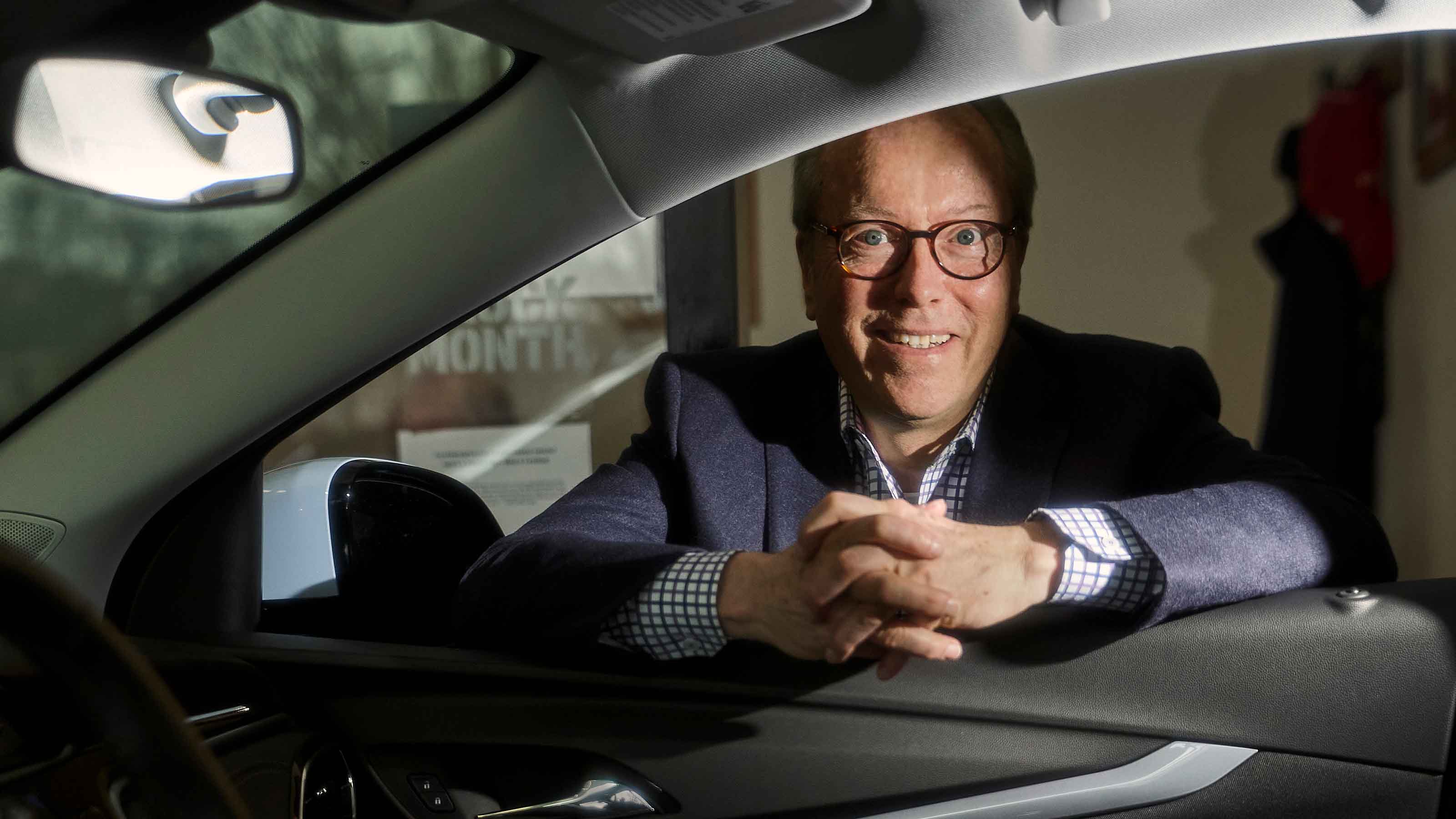Small Business Success Story: Beach Pockets
Bored at the shore, a former dental hygienist launches a booming beach business.

Profit and prosper with the best of Kiplinger's advice on investing, taxes, retirement, personal finance and much more. Delivered daily. Enter your email in the box and click Sign Me Up.
You are now subscribed
Your newsletter sign-up was successful
Want to add more newsletters?

Delivered daily
Kiplinger Today
Profit and prosper with the best of Kiplinger's advice on investing, taxes, retirement, personal finance and much more delivered daily. Smart money moves start here.

Sent five days a week
Kiplinger A Step Ahead
Get practical help to make better financial decisions in your everyday life, from spending to savings on top deals.

Delivered daily
Kiplinger Closing Bell
Get today's biggest financial and investing headlines delivered to your inbox every day the U.S. stock market is open.

Sent twice a week
Kiplinger Adviser Intel
Financial pros across the country share best practices and fresh tactics to preserve and grow your wealth.

Delivered weekly
Kiplinger Tax Tips
Trim your federal and state tax bills with practical tax-planning and tax-cutting strategies.

Sent twice a week
Kiplinger Retirement Tips
Your twice-a-week guide to planning and enjoying a financially secure and richly rewarding retirement

Sent bimonthly.
Kiplinger Adviser Angle
Insights for advisers, wealth managers and other financial professionals.

Sent twice a week
Kiplinger Investing Weekly
Your twice-a-week roundup of promising stocks, funds, companies and industries you should consider, ones you should avoid, and why.

Sent weekly for six weeks
Kiplinger Invest for Retirement
Your step-by-step six-part series on how to invest for retirement, from devising a successful strategy to exactly which investments to choose.
Kiplinger's spoke with Barbara Bigford, 58, of Paoli, Pa., about what inspired her to invent Beach Pockets, which are anchors for beach umbrellas. The dental hygienist-turned-entrepreneur has made more than one million dollars in sales since creating the product in 2001. Here are excerpts from our interview:
Where did you get your idea? For years, I took my three kids and our beach umbrellas to the shore. I’d look forward to reading my novel but end up holding down umbrellas in the wind. One day in 2001, I was bored and staring at the sand. I thought, Why not use it to hold down the umbrellas?
What came next? I found a lightweight and fast-drying material and sewed a pocket that could be tied to the umbrella pole and filled with sand. Unfortunately, at the beach the anchor slipped off the pole. Several trips to Home Depot later, I found a collar with a screw that you could tighten to fit different-size poles, and I attached pockets to the collar. It worked.
From just $107.88 $24.99 for Kiplinger Personal Finance
Become a smarter, better informed investor. Subscribe from just $107.88 $24.99, plus get up to 4 Special Issues

Sign up for Kiplinger’s Free Newsletters
Profit and prosper with the best of expert advice on investing, taxes, retirement, personal finance and more - straight to your e-mail.
Profit and prosper with the best of expert advice - straight to your e-mail.
Did you apply for a patent? Yes, after one old gentleman on the beach pumped me for information and asked if I had taken my idea to a lawyer. Within 24 hours, I talked with a patent attorney in Philadelphia to start the process. I got a patent in September 2002.
How did you start your business? I paid about $450 apiece to have a couple of prototypes made, and I took them to a trade show. The response was overwhelmingly positive. I hired a manufacturer in Orlando to make 6,000 units. Over the next several years, I sold to Acme supermarkets, Ace Hardware, SuperValu, Walgreens and other retailers. In 2004, I appeared on QVC [the broadcast retailer], where I sold more than 2,000 units in six minutes.
How did you finance the business? I used about $34,000 in savings and $85,000 from a home-equity line of credit, plus hundreds of thousands of dollars in bank loans, primarily to pay for manufacturing. I used any money I made to pay off loans or plowed it into the business.
What was your sales strategy? I was honest, I was genuine, and if I didn’t know something, I asked questions. In my first meeting, with Acme Markets, the corporate buyers asked me what my margin was. I was a dental hygienist. I didn’t know margin! I told them so, and they were really helpful. Also, I was tenacious. Even after Wal-Mart made Beach Pockets available online to its store managers, I visited 125 stores over six months.
Why did you decide to license Beach Pockets? Through 2008, I racked up nearly $1.6 million in sales. I realized that I needed help to run a growing business. I didn’t want to sell the company, so licensing my product to another company to manufacture and distribute seemed best. After the first licensing agreement didn’t work out, in 2013 I signed with Aqua Leisure, in Boston, a leader in seasonal and recreational goods. The company paid me an initial royalty to begin our partnership, and I’ll get between 4% and 6% of everything that Aqua Leisure sells, starting with a relaunch this summer. That’s a typical licensing arrangement. I’m also getting a monthly consulting fee. I’m bringing in a little over $50,000 annually from my projects, but when the royalties from Aqua Leisure kick in, my income will increase significantly. Aqua Leisure anticipates sales of $1 million annually within two years.
Have a success story you want to share? Write us at successstory@kiplinger.com.
Profit and prosper with the best of Kiplinger's advice on investing, taxes, retirement, personal finance and much more. Delivered daily. Enter your email in the box and click Sign Me Up.

-
 Dow Adds 1,206 Points to Top 50,000: Stock Market Today
Dow Adds 1,206 Points to Top 50,000: Stock Market TodayThe S&P 500 and Nasdaq also had strong finishes to a volatile week, with beaten-down tech stocks outperforming.
-
 Ask the Tax Editor: Federal Income Tax Deductions
Ask the Tax Editor: Federal Income Tax DeductionsAsk the Editor In this week's Ask the Editor Q&A, Joy Taylor answers questions on federal income tax deductions
-
 States With No-Fault Car Insurance Laws (and How No-Fault Car Insurance Works)
States With No-Fault Car Insurance Laws (and How No-Fault Car Insurance Works)A breakdown of the confusing rules around no-fault car insurance in every state where it exists.
-
 How to Search For Foreclosures Near You: Best Websites for Listings
How to Search For Foreclosures Near You: Best Websites for ListingsMaking Your Money Last Searching for a foreclosed home? These top-rated foreclosure websites — including free, paid and government options — can help you find listings near you.
-
 Four Tips for Renting Out Your Home on Airbnb
Four Tips for Renting Out Your Home on Airbnbreal estate Here's what you should know before listing your home on Airbnb.
-
 Is Relief from Shipping Woes Finally in Sight?
Is Relief from Shipping Woes Finally in Sight?business After years of supply chain snags, freight shipping is finally returning to something more like normal.
-
 Economic Pain at a Food Pantry
Economic Pain at a Food Pantrypersonal finance The manager of this Boston-area nonprofit has had to scramble to find affordable food.
-
 The Golden Age of Cinema Endures
The Golden Age of Cinema Enduressmall business About as old as talkies, the Music Box Theater has had to find new ways to attract movie lovers.
-
 Pricey Gas Derails This Uber Driver
Pricey Gas Derails This Uber Driversmall business With rising gas prices, one Uber driver struggles to maintain his livelihood.
-
 Smart Strategies for Couples Who Run a Business Together
Smart Strategies for Couples Who Run a Business TogetherFinancial Planning Starting an enterprise with a spouse requires balancing two partnerships: the marriage and the business. And the stakes are never higher.
-
 Fair Deals in a Tough Market
Fair Deals in a Tough Marketsmall business When you live and work in a small town, it’s not all about profit.

